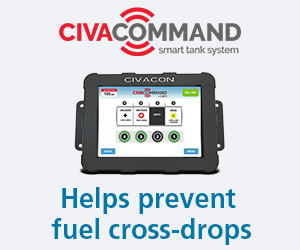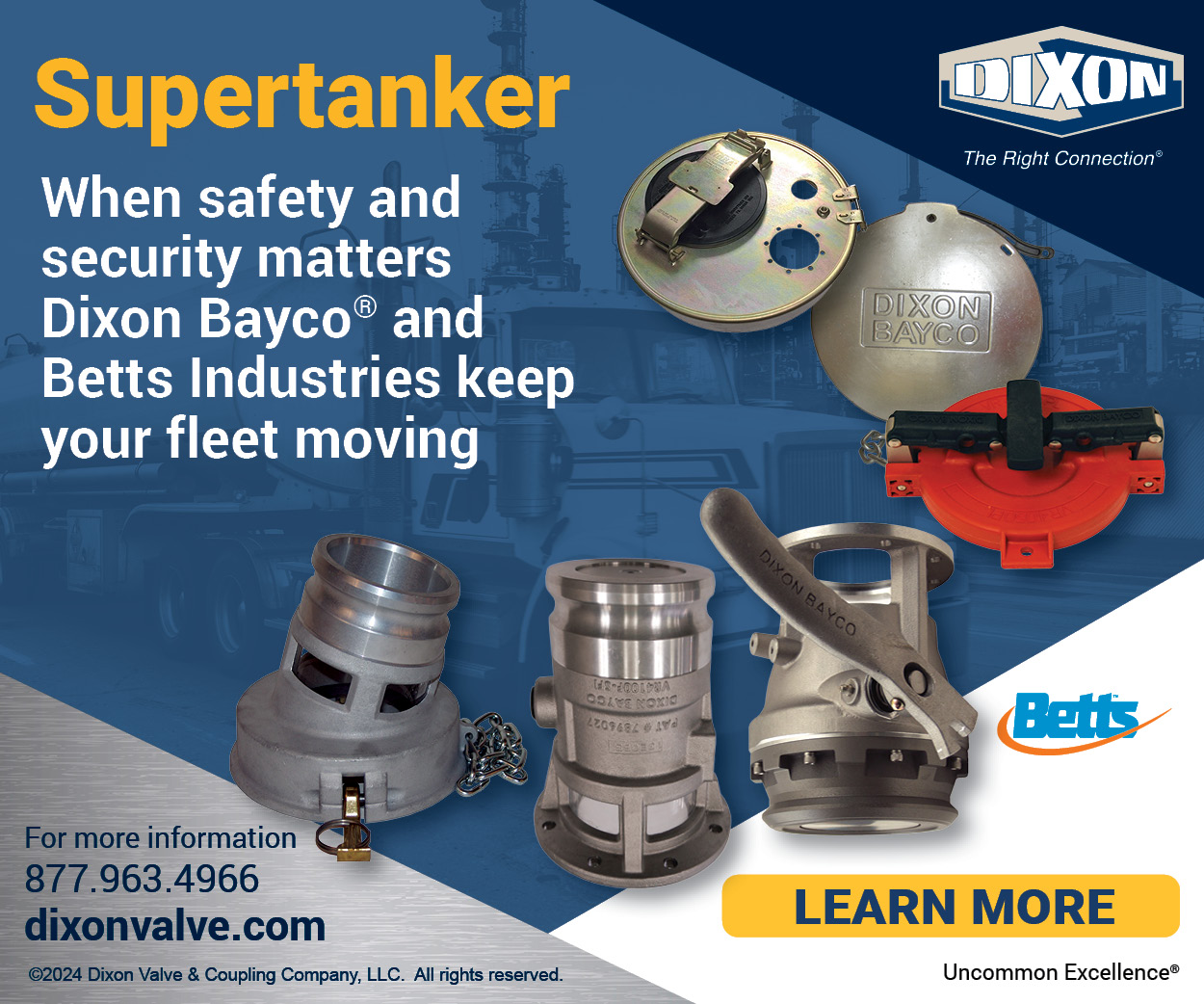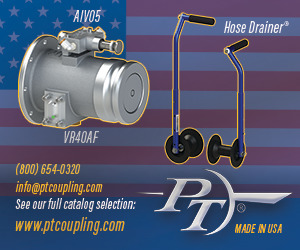SafetyRegulations
The FMCSA is pioneering a revolutionary approach to the future of commercial transportation with the FMCSA autonomous truck study.
The Federal Motor Carrier Safety Administration (FMCSA) is pioneering a revolutionary approach to the future of commercial transportation. The agency has proposed the FMCSA autonomous truck study, a driving simulator study to explore the potential of teaming human drivers with Level 4 autonomous commercial motor vehicles (CMVs). This groundbreaking research, titled “Safety Impacts of Human-Automated Driving System (ADS) Team Driving Applications,” aims to quantify the safety implications of such a partnership. To learn more about FMCSA’s initiatives, check out this page.
The FMCSA Autonomous Truck Study: A Deep Dive
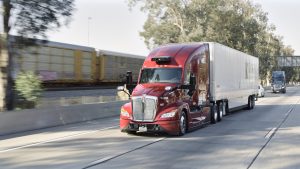
The study aims to quantify the safety implications of teaming human drivers with Level 4 autonomous commercial motor vehicles (CMVs).
The FMCSA autonomous truck study focuses on team driving applications with an SAE Level 4 (L4) CMV. In L4 automation, vehicles are capable of performing all necessary functions for driving without human monitoring in limited conditions. The human driver will not be asked to take over control of the vehicle, and the L4 CMV will not operate outside of the conditions it was designed for without human control. For more insights into the challenges facing autonomous vehicles, explore this page.
Potential Relief from Hours of Service Regulations
The FMCSA autonomous truck study will assess the safety benefits of and potential problems with human-ADS team driving applications. It will also support the analysis of potential requests for relief from FMCSA’s hours-of-service regulations.
Enjoying our insights?
Subscribe to our newsletter to keep up with the latest industry trends and developments.
Stay Informed
The Need for More FMCSA Research
FMCSA cited a “paucity of FMCSA research related to ADS-equipped CMVs.” Most commercial ADSs on U.S. roadways are in passenger vehicles, and CMV ADSs are only recently being implemented in real-world operations. Therefore, the FMCSA needs more data on these vehicles to understand the human factors surrounding team driving applications.
Teaming Human Drivers with Autonomous Trucks
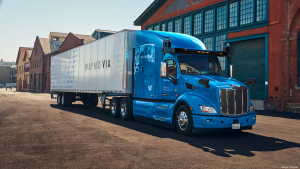
In Level 4 automation, vehicles are capable of performing all necessary functions for driving without human monitoring in limited conditions.
FMCSA outlined four use cases where a human could team with an ADS-equipped CMV. Each of these use cases offers different potential human factors benefits and challenges. However, it is unclear how each human-ADS teaming use case will affect safety, productivity, and efficiency.
The Study’s Methodology and Participation
The FMCSA autonomous truck study includes data collection from a series of questionnaires and a driving-simulator focused experiment. About 80 commercial vehicle drivers are expected to participate in the study. Eligible drivers will hold a valid commercial driver’s license, currently drive a CMV, be 21 years of age or older, and pass a motion sickness history screening questionnaire.
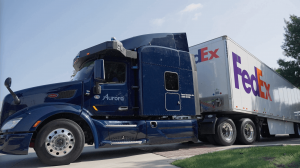
The FMCSA Autonomous Truck Study will assess the safety benefits of and potential problems with human-ADS team driving applications.
In a recent development, the FMCSA has expanded its recruitment efforts for the study, calling on 100 truck drivers to participate in an experiment using a simulator to evaluate distractions that occur while driving trucks equipped with lower-level autonomous technology. This initiative is a testament to the FMCSA’s commitment to understanding the practical challenges and implications of integrating human drivers with autonomous systems. For more on fleet studies, click here.
Moreover, the FMCSA is also seeking public comment about Federal Motor Carrier Safety Regulations (FMCSRs) that may need to be amended, revised, or eliminated to facilitate the safe introduction of automated driving systems (ADS) equipped commercial motor vehicles (CMVs) onto our Nation’s roadways. This indicates the agency’s commitment to ensuring that the regulatory framework supports the safe and efficient operation of autonomous commercial vehicles. For more on motor carriers, visit this link, and for more on FMCSRs, click here.
Today, August 7, marks the deadline for comments on the proposed study. As we await further updates on this groundbreaking research, its potential impact on the future of commercial transportation remains a topic of keen interest. Stay tuned for more updates on the FMCSA Autonomous Truck Study and its implications for the future of commercial transportation. For the latest trucking reports, visit this link and for the latest in trucking tech, click here.
Key Points from the FMCSA Autonomous Truck Study
- The Study’s Focus
The FMCSA autonomous truck study is focused on exploring the potential of teaming human drivers with Level 4 autonomous commercial motor vehicles (CMVs). The study aims to quantify the safety implications of such a partnership.
- Level 4 Automation
The study is centered around SAE Level 4 (L4) CMVs, where vehicles are capable of performing all necessary functions for driving without human monitoring in limited conditions.
- Potential Regulatory Relief
The study will assess the safety benefits of and potential problems with human-ADS team driving applications. It will also support the analysis of potential requests for relief from FMCSA’s hours-of-service regulations.Safety
- Need for More Research
The FMCSA has cited a lack of research related to ADS-equipped CMVs, indicating a need for more data on these vehicles to understand the human factors surrounding team driving applications.
- Human-ADS Teaming
The FMCSA has outlined four use cases where a human could team with an ADS-equipped CMV. Each of these use cases offers different potential human factors benefits and challenges.
- Methodology and Participation
The FMCSA autonomous truck study includes data collection from a series of questionnaires and a driving-simulator focused experiment. About 80 commercial vehicle drivers are expected to participate in the study.
- Expanded Recruitment and Public Comment
The FMCSA has expanded its recruitment efforts for the study and is seeking public comment about Federal Motor Carrier Safety Regulations (FMCSRs) that may need to be amended, revised, or eliminated to facilitate the safe introduction of ADS-equipped CMVs onto our Nation’s roadways.
- Deadline for Comments
Today, August 7, marks the deadline for comments on the proposed study. As we await further updates on this groundbreaking research, its potential impact on the future of commercial transportation remains a topic of keen interest.
Here are some external resources that provide further insights into the FMCSA Autonomous Truck Study:
- FMCSA’s Official Announcement: Learn more about the FMCSA’s official announcement regarding the study and their request for public comment about Federal Motor Carrier Safety Regulations (FMCSRs) that may need to be amended, revised, or eliminated to facilitate the safe introduction of automated driving systems (ADS) equipped commercial motor vehicles (CMVs) onto our Nation’s roadways.
- FMCSA’s Review of Regulations for Automated Commercial Vehicles: Understand the FMCSA’s review of the Federal Motor Carrier Safety Regulations (FMCSRs) as they may apply to automated commercial vehicles.
- CCJ Digital Article: Get insights into the FMCSA’s process to study driver interactions with Level 2 and Level 3 autonomous trucks.


